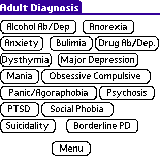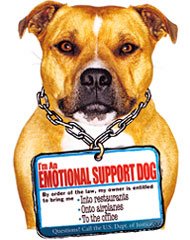 I seem to have misplaced a patient's chart. My office is small-- a single room and a very important closet-- and I never took it home, so I know it's somewhere. I've searched every pile, I've gone through the file drawers twice, thumbing each and every file folder along the way. It will show up, I've misplaced charts before and they always show up, usually wedged into another chart or fallen through the hanging files, so I'm not actually worried, it's just the frustration of knowing it has to be there and it isn't.
I seem to have misplaced a patient's chart. My office is small-- a single room and a very important closet-- and I never took it home, so I know it's somewhere. I've searched every pile, I've gone through the file drawers twice, thumbing each and every file folder along the way. It will show up, I've misplaced charts before and they always show up, usually wedged into another chart or fallen through the hanging files, so I'm not actually worried, it's just the frustration of knowing it has to be there and it isn't.There's nothing too crucial in this particular chart; if the patient shows up before the chart (and right now, that's a distinct possibility), it will be fine-- I remember her story, remember her meds, there are no irreplaceable consultants' notes, no labwork to be tracked down, it's just the idea: a medical record shouldn't be misplaced, though it happens all the time in clinics, but this is a single office, just me, it has to be there.
First, a little about the patient*. Ms. G first consulted me a couple of years ago. Her previous psychiatrist had moved away, she was down and wanted to resume the medication she'd found helpful, and her life was a mess. By the second appointment, she'd compiled a type-written list of what she wanted to change (oops, that list is in the missing chart). The list was four pages long. She came to a few sessions and then disappeared, calling once to ask for a refill, and then who knows? I wondered, I may have even called and left a message, or maybe I didn't (I probably didn't document "calling to ask how you are" so not in the missing chart). Time went by, well over a year, and she called to request an appointment.
"I want to resume therapy. I'm ready now." I asked what had transpired in the intervening seasons. Things had gotten much better. She'd left the dysfunctional relationship that was causing her so much discomfort. She is seeing a nice guy who treats her well. She stopped (well, almost) smoking pot. "I really didn't like that you thought I had a problem with it," she said. She'd quit (well, almost) to prove me wrong. I'll take it.
I listened.
"So," I said after enough listening (well, almost), "let me get this straight. You're smoking less, you've gotten out of that hellish relationship, you've met someone new and wonderful, you're feeling much better."
"Yes."
"And," I continued "you did this all on your own without psychotherapy, and now that everything is going well, you want psychotherapy?"
She laughed. We set a schedule, and other than a misplaced chart, the sessions are going well.
This afternoon, I scoured the office again. Maybe it's with my dead charts, I thought. I keep charts for patients whom I haven't seen in years, and don't expect to ever see again, in a separate drawer, but I keep them, because I've learned that no chart is really dead, people pop up when I least expect them. I'd been in that drawer recently to dust off the chart of a patient who showed up after a four-year absence.
There' s something hard about going through the dead chart drawer. I'm hit with names of people I don't recall, names that don't even sound familiar. I never pick them up to see, maybe this was someone I saw only once ten years ago, maybe it was someone I saw as coverage for another doctor. Or I see a name and it jogs my memory for a person or a story I'd long ago forgotten. What's the hardest though, is seeing the charts of those patients I'd seen for years, people I knew intimately, and wondering what became of their lives. Some of them disappeared from therapy without an explanation, or even if their was an explanation--maybe never clearly articulated but understandable, like a change in their health insurance or simply being tired of commuting an hour and a half each way to come to appointments-- I'm left wondering where they went, why, how they feel about the therapy they never ended, if they left angry, tired, or simply stale. Some of them, I know (ah, I've learned to call people who just disappear) simply tapered away when they felt better; they hadn't meant the last appointment to be the last, but simply felt the work was done. So there's the chart of the woman with really really bad OCD whose son died during her treatment and the horror of that night, of that phone call, rushes back at me. And there's the chart of the young man who was tormented by his inability to fall permanently in love (he was so young, the story hadn't yet been told), it's been years, he'd be in his early thirties by now: I wonder he'd ever married. Or the gentleman who got lost enroute to the first session at my new office, and after years of therapy had never come back. When I last called him, he sounded awful; he'd be in his late eighties by now, and I feel sad to think that he's possibly been dead a good long time. A book he gave me sits on my shelf. And there is the chart of man who left treatment to pursue something a bit fringy-- I'd heard his new psychiatrist lost his license, read in the paper that his wife had died and had, years after last seeing him, gotten a phone call one morning to hear his intoxicated and distressed voice, just calling to say hello. And finally, there's the chart of a patient who left angry, and of another who also left angry, and I'm left wondering how many others left with bad feelings.
Sometimes it's simply like the projector broke in the middle of the movie and I just want to know how the stories turned out. Other times, it's like looking at photos of my children when they were toddlers-- good things, good memories, but something about it is inexplicably painful.
The dead file drawer is hard. And Ms. G's file was not to be found.
(*Not her real name. Note the patient details are all obscured; I am mostly real.)






















